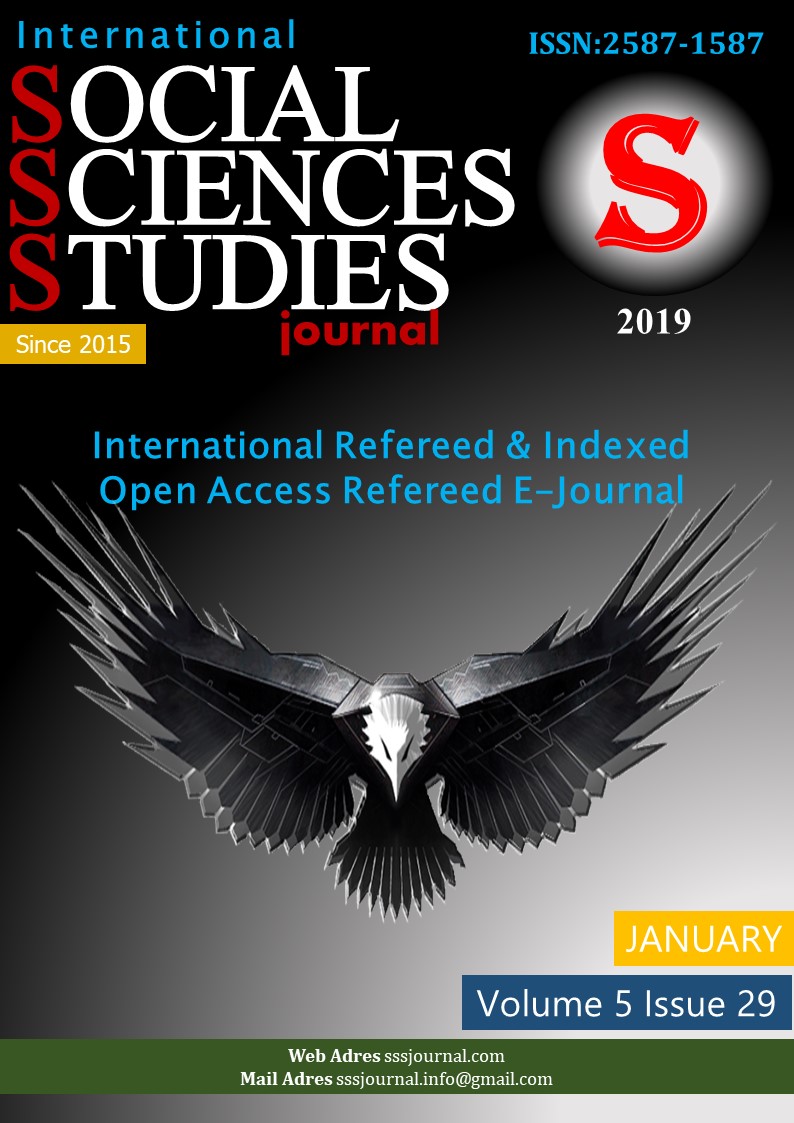Author :
Abstract
İnsanoğlu dili dille anlamaya çalışır ve dile dair sorularını yine dille sorunsallaştırır. Bunu mümkün kılan ise insanın dili tanımlayan soyut bir üst dil geliştirmiş olmasıdır. Dilsel toplulukların dili bir gereç olarak kullanırken en büyük amacı ise iletişim kurmaktır. Aynı dil topluluklarının üzerinde uzlaşımı olan ortak bir zemin üzerinde işleyen, birinin diğerinin değerini belirlediği veya değiştirdiği somut dilsel göstergeler topluluğu olarak tanımlayabileceğimiz dil toplumsal iken söz bireyseldir. Bireylerin sözce üretme ediminde ise öznellik söz konusudur. Bununla birlikte, bireyselliğini kullanırken insan söz söylediğinde, doğrudan anlatımı tercih etmeyebilir. Dolambaçlı sözler sarf etmesi anlaşılmak istememesinden kaynaklı değildir. Örtük bir anlatım biçimi olan ve sözlü dilde yaygın bir biçimde kullanılan ima dilin düşünsel temelde gelişmişliğinin somut bir göstergesidir. İma veya diğer bir deyişle anıştırmanın gerçek değerini bulduğu yer ise sözcenin üretildiği anın kendisi; yani sözceleme anıdır. Bu çalışmada, sözlü dil yapısına ve sözcelem kuramına genel olarak değinildikten sonra, örtük bir anlatım biçimi olan ima, sözcelem edimi şartlarında sözcelem ve karşılıklı sözceleme düzeyinde incelenecektir.
Keywords
Abstract
Humans use a set of signals, language, to explore the language. What renders it possible is the simple fact that a meta-language to define language has been developed. Using a language, the members of speech communities are mainly aimed at communicating with one another. While language assumed to be made up of a set of concrete linguistic signs upon which the members of the same speech community are agreed is a social phenomenon, language used individually by each member is unique. Such a subjectivity can be observed in virtually every utterance produced by unique members of a given language. In using this subjectivity, humans, nevertheless, do not always refer to an explicit manner of telling. That they may engage themselves in an unexplicit way of uttering words does not show their intention of not wanting to be understood by others they exchange words with. Implicature which is largely used in verbal interaction is, in fact, a clear indication of advanced state of language on intellectual level. The true value of any utterance implied can only be appreciated within the moment it is produced; the act of enunciation. Having discussed the segmental and supra-segmental features of an utterance and the enunciation theory in general, the study seeks to investigate the unexplicit manner of telling, namely implicature, in the light of enunciation theory and the conditions in which the act of enunciation is performed.
Keywords
- Doğan, A. (2014). Sözlü ve Yazılı Çeviri Odaklı Söylem Çözümlemesi, Siyasal, Ankara.
- Doğan, A. (2014). Sözlü ve Yazılı Çeviri Odaklı Söylem Çözümlemesi, Siyasal, Ankara.
- Kılıç, V. (2002). Dilin İşlevleri ve İletişim, Papatya, İstanbul, 1. Baskı.
- Kıran, Z. (1986). Dilbilim Akımları, Onur Kitap ve Yayın Merkezi, Ankara.Kıran, Z. & Kıran, A.E. (2010). Dilbilime Giriş, Seçkin, Ankara, 3. Baskı.
- Saussure, De. F. (1985). Genel Dilbilim Dersleri. (Çev.: Berke Vardar), Türk Dil Kurumu Yayınları, Ankara.
- Uygur, N. (1989). Dilin Gücü, Ara, İstanbul
- Wodak, R., Maingueneau, D., & Angermuller, J. (2014). The Discourse Studies Reader : Main Currents in Theory and Analysis, John Benjamins Publishing Company, Amsterdam / Philadelphia.
